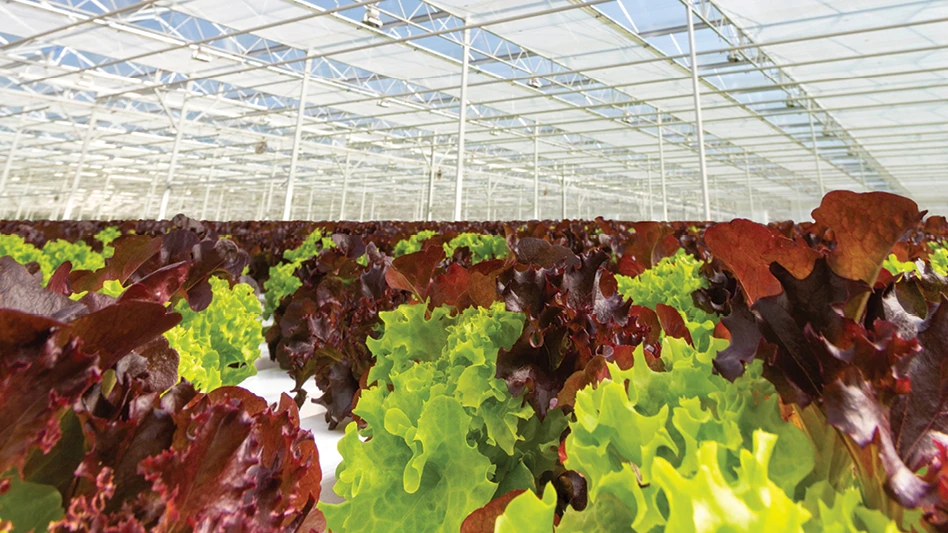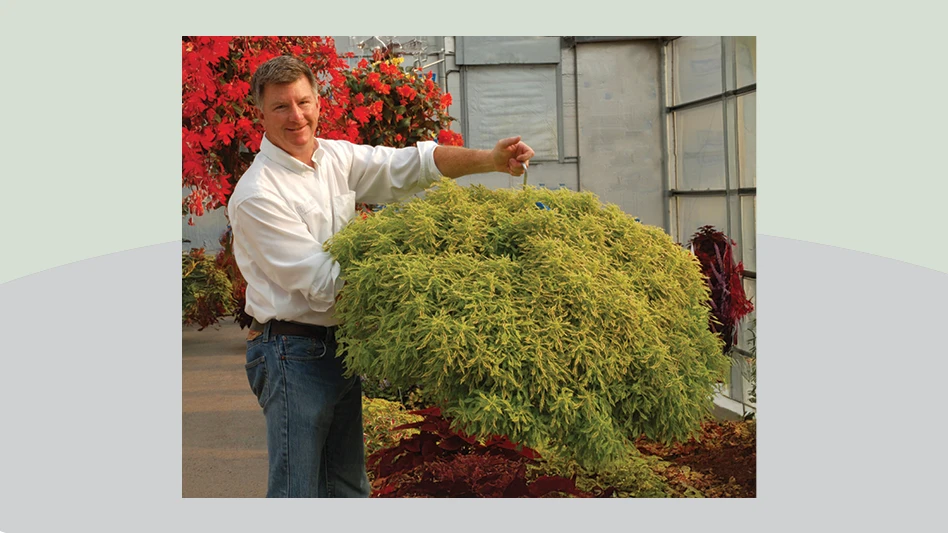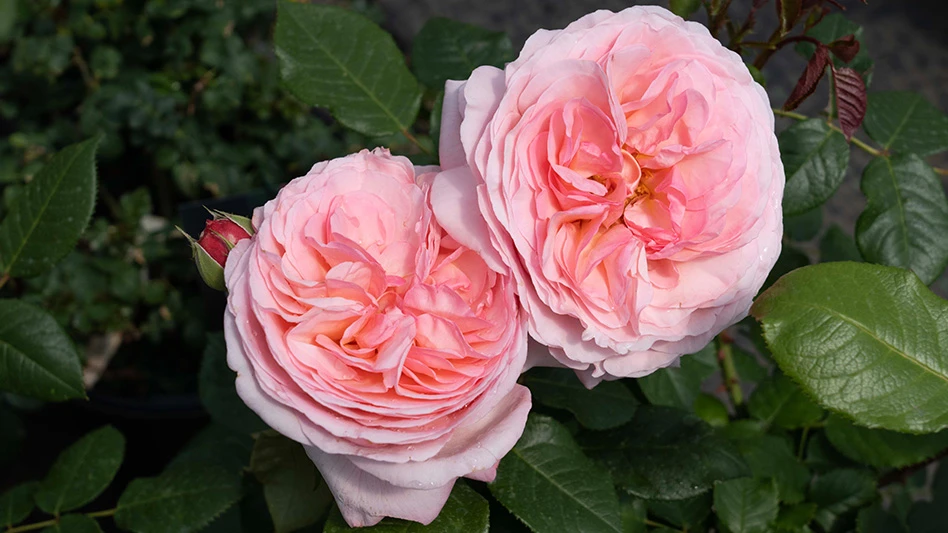
Growing up, Robert “Bob” Glover wanted to be a weatherman. Now, he deals with the weather every day as head grower at Dan Schantz Farm & Greenhouses.
Blending his love of science with his strong business background, Glover uncovered the perfect opportunity to grow his career in the greenhouse industry.
“I never expected to be doing this, but I like the challenge,” says Glover, who studied meteorology at Northwest Missouri State University. Facing tough competition for meteorology jobs out of college, Glover took a sales job with intentions of working in business briefly before returning to the weather industry.
Glover ended up staying in business, managing several retail operations over the next 17 years. Then, he bought a house — and everything changed. Especially after he began landscaping around his home.
“It clicked with me almost immediately, just sticking my hands in the dirt,” he says. “I loved everything about it — how the plants looked, watching them grow — and I became a plant nerd pretty quickly.”
Glover became well-known in the neighborhood for his houses’ colorful curb appeal. Some friends, who worked at a local greenhouse, heard about his green thumb and asked if he wanted to work with them. What started as a side job watering plants in 2009 soon evolved into a full-time role, as Glover earned promotions to assistant grower and, eventually, head grower at Ritter Greenhouse in St. Louis, Missouri. As much as Glover enjoys growing plants, his experience and passion for managing people is what makes him so successful in this role. “My strength is leading people and training them to become better than me,” says Glover, who moved to Dan Schantz Farm & Greenhouses in 2019. “That’s what I learned from business: To be successful takes more than numbers. It’s about the people, because they are the ones who are going to make the numbers happen and make the plants beautiful.”
On-the-job training
Without any formal training in botany or horticulture, Glover absorbed his greenhouse know-how through on-the-job training. The team at Ritter taught him technical plant knowledge as well as the “intangible intuition” of growing, he says. Now, his goal as head grower is passing that wisdom down to the next generation — which currently consists of four growers and one assistant grower, and he plans to add more roles next year.
“I try to teach them, not only the technical side of growing, but also the leadership skills they need to succeed; that’s even more crucial,” Glover says. “I try to train them to be a step ahead of where they’re at, so if something happens or someone leaves, they’re ready to jump into the next position.”
Glover instills a sense of ownership in his growers by making them responsible for maintaining their respective sections with pride, as if it were their own property. Meanwhile, he looks for teachable moments that allow growers to learn from each other.
“When I see new issues in the greenhouse, I’ll bring the whole staff in to take a look at it,” Glover says. “I explain to them what it is, why it happens, and how to respond. Outbreaks of pests or bacteria can add some pressure when you’re dealing with a live product, so what do you do in a situation like that?”

Network support
Glover gets excited when he discovers a new bug or unfamiliar pathogen in the greenhouse because he enjoys the problem-solving challenge. Of course, he doesn’t claim to have all the answers for every plant issue, so he often turns to his network for help.
In fact, the biggest contrast he’s noticed in the green industry, compared to the competitive retail world he cut his teeth in, is how helpful his growing peers have been. “The greenhouse industry tends to be more tight-knit,” he says. “Even competitors will give you a helping hand. That’s very different from what I saw in previous businesses.”
Glover sometimes calls Ritter to ask his former team for advice on how to handle certain diseases. He routinely reaches out to his vendor reps for ongoing support, as well — especially as he adjusts to the climate conditions in Pennsylvania after nearly a decade of growing in Missouri.
“As a head grower, you just can’t do it all by yourself. You’re only as good as the people around you, so it’s good to have a network of people who are smarter than you." - Robert "Bob" Glover
“Growing in the Northeast is a lot different than growing in the Midwest, so it’s good to have a network that’s used to growing in this environment,” says Glover, who oversees 504,000 square feet of covered production — and just as much space outside — where his team grows bedding plants, annuals, bulbs, mums and poinsettias.
By leaning on his network and building his internal staff, Glover takes a team approach to solving problems and improving efficiencies at Dan Schantz Farm & Greenhouses.
“As a head grower, you just can’t do it all by yourself,” he says. “You’re only as good as the people around you, so it’s good to have a network of people who are smarter than you.”

Explore the April 2021 Issue
Check out more from this issue and find your next story to read.
Latest from Greenhouse Management
- North Carolina Nursery & Landscape Association announces new executive vice president
- Plant Development Services, Inc. unveils plant varieties debuting in 2025
- Promo kit available to celebrate first National Wave Day on May 3
- Applications now open for American Floral Endowment graduate scholarships
- Endless Summer Hydrangeas celebrates 20 years with community plantings
- Invest in silver
- Garden Center magazine announces dates for 2025 Garden Center Conference & Expo
- USDA launches $2 billion in aid for floriculture growers





